It’s taken me a few days to write this – mostly because I wanted to give it the due attention it deserves.
So much was lovely and joyous and poignant and funny and sad and lovely again about this play, which I saw last Sunday night.
And there was much to be moved by.
For writer and director, Julia Pascal, this very much was her story. And one that I’m glad she shared with us…
A Manchester Girlhood is dedicated to the memory of my grandmother, Esther Jacobs, who taught me that education is never too heavy to carry around.
Julia Pascal
In Bucharest 1910, Esther Goldenberg has been forced to marry Emanuel Jacobs. He is her parents’ choice. The two young Romanian Jews go to Manchester and have three daughters, Isabel, Edith and Pearl. Isabel’s only ambition is to be a doctor’s wife. Edith becomes a soldier. Pearl marries a GI. These three sisters are at the heart of the drama.
This dream-like text explores the idea that each person relives intense moments from a whole life in the moment before death.
I’ll start by saying what a wonderful and beautiful setting for this gem of a production.


Manchester Jewish Museum sits on Cheetham Hill Road, and since receiving a £6 million redevelopment, is stunning, not least due to the beautiful Spanish and Portuguese synagogue.

And lucky us that this was the setting for the production, the space used imaginatively and respectfully.
I recall the first time I saw Pulp Fiction (stay with me), in 1995 on video. VI.DE.O.
I knew I loved it, each scene was something special, exciting. But it took until the third watch until I was able to fully piece the narrative together.
This non-linear concept in text, theatre, film demands investment from the audience and commitment to follow the thread of what’s happening.




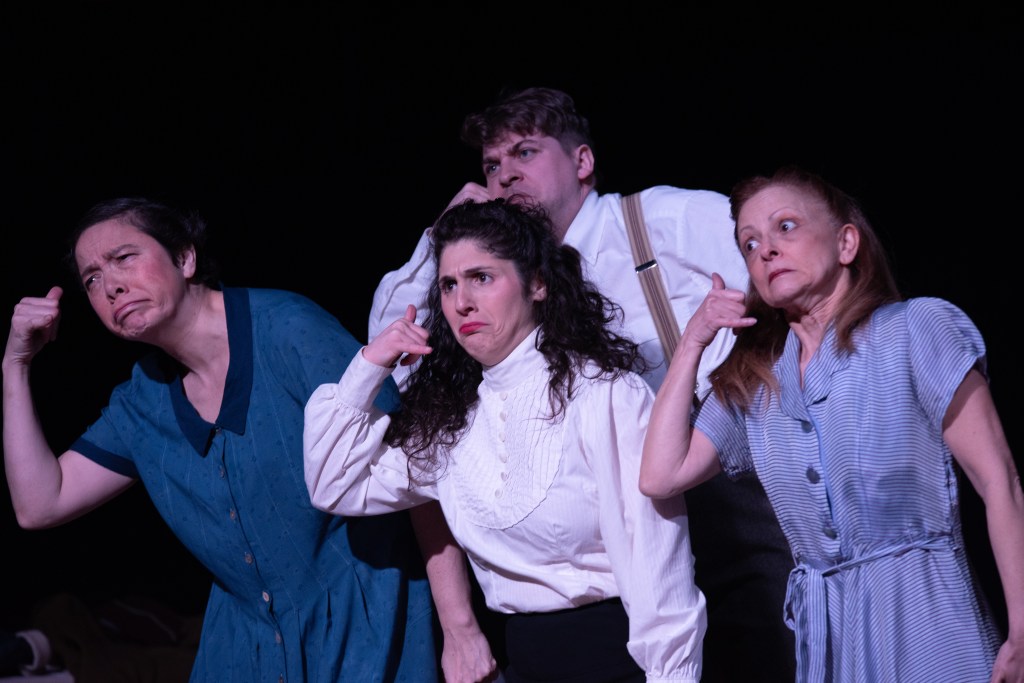
A Manchester Girlhood ‘moves in time and space’ between Bucharest in 1910 and 1939, Manchester 1910 and 1972 and New Orleans 1945-2013. The characters depicted as ‘children, young, mature and elderly women’. And whilst a construct which had potential to lose its audience if not done well, here, my reader, it was a masterclass in done well.
The narrative set domestic tensions, social aspiration, gender-rebelling ambition and good old love and loss against a backdrop of World War II and racism in the US.


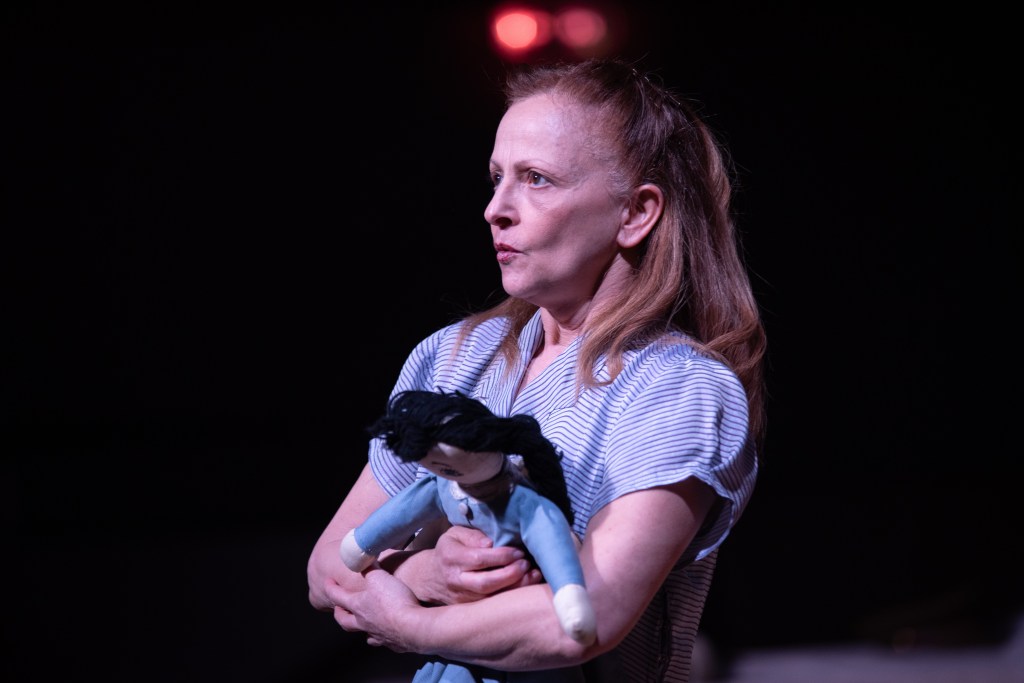
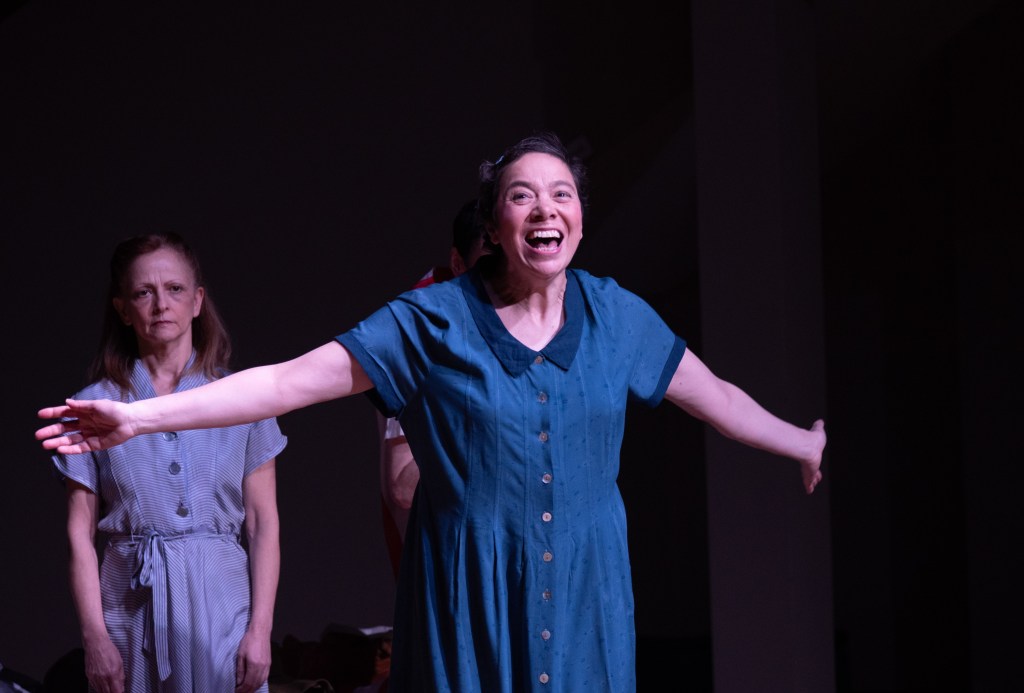


Each woman’s story and strand of the narrative brought individual delight, each actor giving due diligence and charisma to the text and human behind the character.
We had song, stand-up, dance, drama and adultery, and what felt like a special glimpse into the fragmented lives of a Jewish family on a journey from Bucharest to Manchester, claiming New Orleans and Blackpool amongst its conquests.


Now not to sound glib but Blackpool to Manchester has been a big part of my own life journey, with added strands of Batley and Paignton thrown in for good measure. Different strokes but, you know, the heart relates how the heart relates… 🙂
My tongue in cheek glibness aside, the women in this generational tale fought oppression on a wide number of fronts, that I cannot pretend to come close to relating to on such a level. We’ve a long way to go but getting to where we are is thanks to those who have fought before us.
After enjoying 60 minutes of frenetic and energetic theatre, and drinks in the charming cafe bar in the museum, we were treated to a Q&A back in the synagogue, with Julia Pascal and the actors – in fact, let’s take an moment for an overdue introduction:
Cast:
Esther – Rosie Yadidl
Emanuel – Eoin O’Dubhghaill
Sabel – Lesley Lightfoot
Edith – Giselle Wolf
Pearl – Amanda Maud
We learned from Julia the sad story of how her grandmother, Esther, not being afforded access to education either by society or her husband, actually lost her ability to speak the English she knew, as she lived her years out in Manchester, being only able to speak Yiddish.
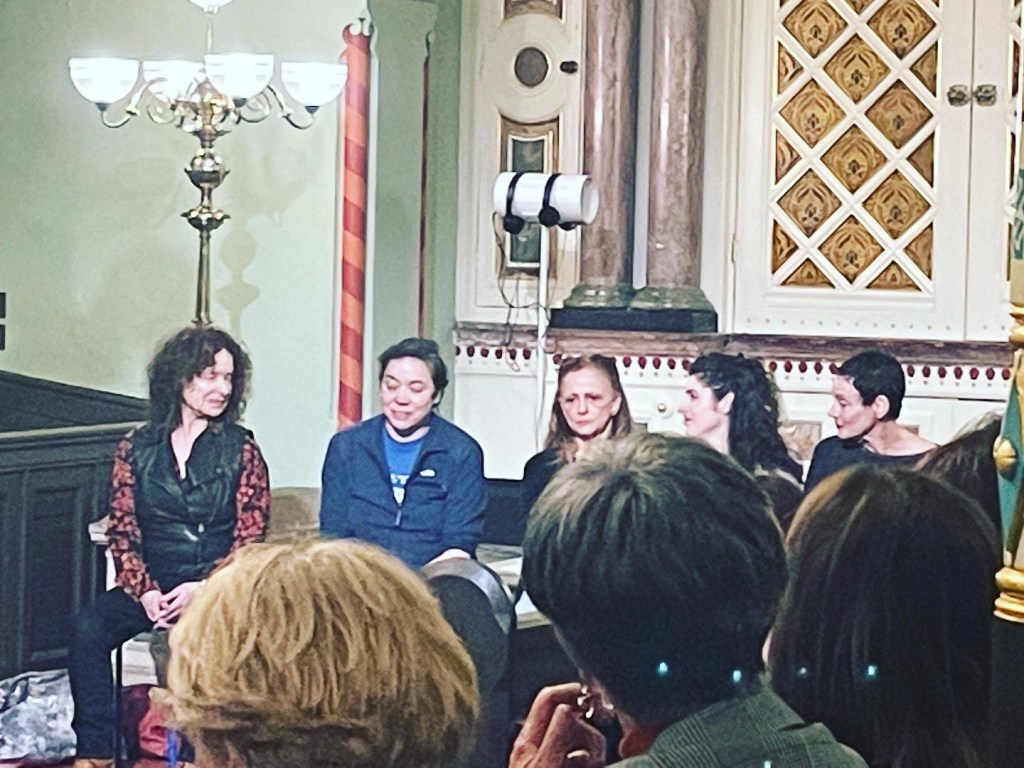

But you got the very real sense that she won the battle on many other fronts, her daughters taking on her pluck and determination in forging their own paths and crossing divides, whether that be a determination to join the British Army, to fall in love and marry a GI and move to America, or to reach the upper echelons of all that is sacred in the world of the well-heeled – marriage to a GP!!
And as Julia generously shared with us, as she headed from her hotel, through Manchester to the museum on Cheetham Hill Road on Sunday night, she said to herself,
Edith, I brought you home…
You can catch this beautiful piece of theatre on 17 May at Burgh House, London NW3, and between 21-23 May at JW3, London NW3. Read more at https://www.pascal-theatre.com/project/a-manchester-girlhood/.
For more details on the work of Pascal Theatre Company, visit https://www.pascal-theatre.com/
For more details on visiting the Manchester Jewish Museum, visit https://www.manchesterjewishmuseum.com
Production:
Stage management – Steve Bryan, Gareth Burns
Costume design and realisation by Lesley Lightfoot
Sound design by Joe Jackson
Musical direction by Rosie Yadid

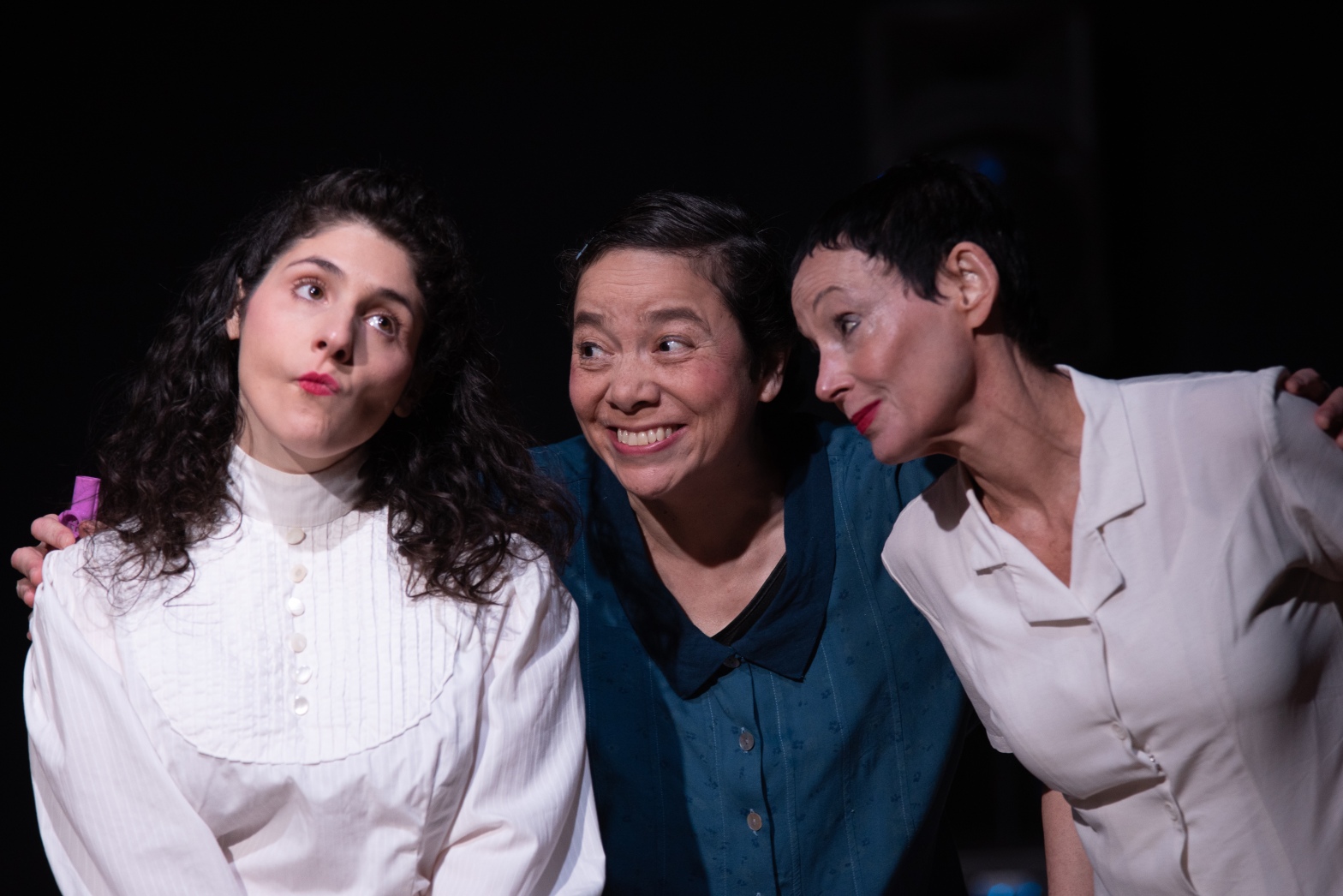
One thought on “A Manchester Girlhood – at Manchester Jewish Museum”